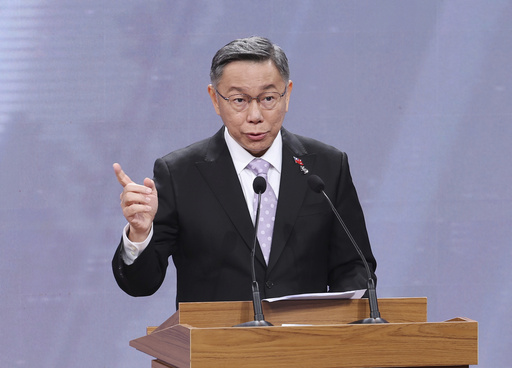
TAIPEI, Taiwan — On Thursday, Taiwan’s prosecutors announced that they have indicted Ko Wen-je, a former presidential candidate and the founder of the Taiwan People’s Party, on charges of corruption. The allegations stem from his tenure as the mayor of Taipei, where he is accused of accepting bribes associated with a real estate project.
According to the prosecutors, Ko is alleged to have received bribes linked to a development owned by the Core Pacific City group in Taipei while also embezzling political contributions. The ramifications of a conviction could see him facing up to 28.5 years behind bars.
The case centers on accusations that Ko permitted the Core Pacific City group to bypass city building regulations in exchange for bribes. Prosecutor Kao Yi-shu emphasized that Ko breached his duties as mayor by not only accepting illicit payments but also attempting to facilitate illegal benefits amounting to billions of dollars for the company.
While Ko was unavailable for comment, he has previously denied any wrongdoing. His political party has characterized the indictment as a politically motivated attack. Lin Fu-nan, a member of the Taiwan People’s Party’s central committee, argued against what they perceive as governmental overreach in the judiciary. He expressed concerns over the implications of political power being abused in such a manner.
Ko, who has a background in medicine, first gained prominence in politics when he successfully won the mayoral election in Taipei in 2014 and subsequently served two terms until 2022. He established the Taiwan People’s Party in 2019, aiming to provide an alternative to the existing two-party system and to bring a new political dynamic.
This year, Ko also ran for the presidency, finishing in third place but drawing significant attention, particularly from younger voters. Taiwan’s political landscape is largely dominated by the longstanding rivalry between the Nationalist Party (Kuomintang) and the Democratic Progressive Party.
Despite being a smaller party, the Taiwan People’s Party has formed an alliance with the Kuomintang, contributing to the passage of three controversial laws last week. Critics argue that these laws could undermine the Constitutional Court and restrict the political capabilities of President Lai Ching-te.

